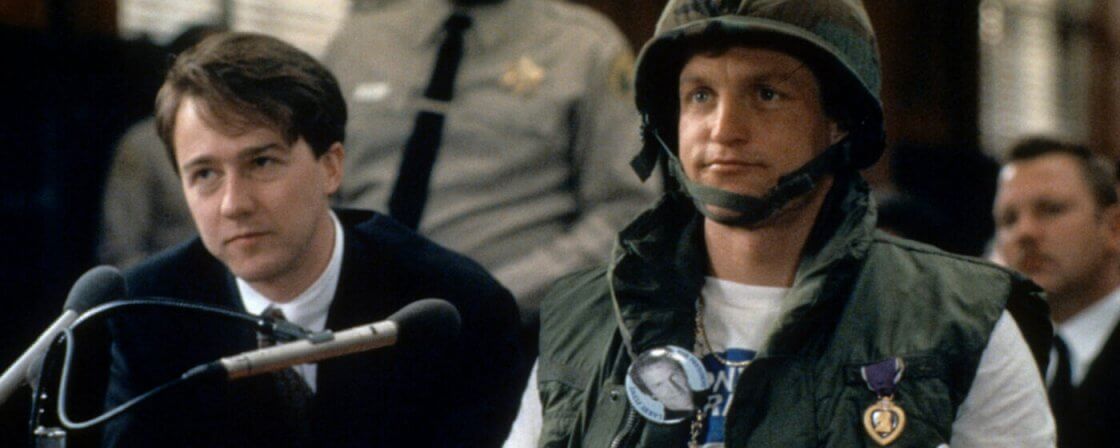If American films are our only source of information about how court proceedings are conducted, it is important to understand that the jurisdiction of American courts is fundamentally different from that of Czech courts. American films, of course, depict (more or less faithfully) the American legal system. The latter is part of the Anglo-American legal system, or common law if we prefer, which is built on slightly different pillars than the so-called continental system we know from the Czech Republic, or Europe.
Tip for article
Hint: For the sake of precision, we should add that continental law is divided into further subgroups. The Czech Republic links the roots of its current law with Austria-Hungary, and therefore our law now belongs to the Germanic area along with Austria, Switzerland or Germany.
It is clear, however, that the continental and Anglo-American legal systems are gradually moving closer together. Nevertheless, differences remain. So if we are only ‘educated’ in law by American films, our own legal proceedings may surprise us. It may even be boring.
Are you solving a similar problem?
Are you dealing with a legal problem you don't know how to handle?
Contact us and we will create a tailor-made solution for you. Our experts will send you a proposal and a quote within 24 hours. If you use our services to solve your problem we will refund your fee.
I want to find a tailor-made solution
- When you order, you know what you will get and how much it will cost.
- We handle everything online or in person at one of our 6 offices.
- We handle 8 out of 10 requests within 2 working days.
- We have specialists for every field of law.
Which five things from American movies are guaranteed not to be found in our courts?
Precedents
A key element of Anglo-American law is the precedent-based way of deciding cases. In practice, this means that if the parties do not agree on the legal characterisation, the courts look to the most recent court decision within a given case that typically resolves the issue. However, if the court finds that the current case is fundamentally different from all previous cases, the judge has the power and duty to establish precedent. Thus, de facto law is created. It is not its only source, but it is the most important one.
This principle is hinted at in some American films, where, for example, in the last minutes of the film, an earlier judicial precedent appears which completely reverses the course of the case, or the court creates a new, ground-breaking precedent. This is also the subject of the film Gideon’s Trumpet, which describes a real case that changed American justice. In it, Mr. Gideon (played by Henry Fonda) goes to jail because he has no money to defend himself. He writes to the Supreme Court about his case, and the Supreme Court’s decision overturns more than 20 years of legal precedent that only a person accused of a federal crime is entitled to an ex officio lawyer in court. Since that time, however, the right to counsel has been a fundamental right of American citizens.
In order for a particular precedent to be binding, the jurisdiction of the court must be taken into account, which means that different courts within the US may have different areas of jurisdiction. Jurisdiction also plays an important role in the Czech legal system, for example in determining the jurisdiction of individual courts, especially when it comes to the case law of the Constitutional Court or the Supreme Court.
Tip for article
Tip: The whole system of legal precedents in the US is much more complex. For a particular precedent to be binding, the jurisdiction of the court and the relationships between superior and inferior courts must be taken into account, but for following the plot of a movie, this amount of information may be sufficient.
In contrast, in the Czech (or continental) legal system, the basic source of law is legislation – laws or decrees. According to the Constitution of the Czech Republic, a judge is bound only by the law. In continental law, the body of judicial decisions is called case law. In our country, only the case law of the Constitutional Court is really legally binding; however, the Supreme Court also monitors and evaluates final court decisions, takes opinions on court decisions and unifies them. Its decisions are thus also understood as precedents (sui generis).
Thus, even if the case law of higher courts is not formally binding, lower courts must not disregard it and should respect it. Judgments are therefore also important in this country, and their importance has been increasing quite significantly in recent years, but it is still far from reaching the importance of judgments overseas.
Jury
Watching (even if only on film) a trial in an American court, you can often get the feeling that it is a kind of theatrical performance, where the defence lawyer in his one-man show tries to impress the jury as an audience.
The jury has great power and tradition in the US. Anyone can be drawn and approached to become a member. It is then considered a civic duty to participate in the trial. On average, a citizen should not be called more than once every two years. The jury plays a vital role in criminal proceedings. The aforementioned efforts of the defense attorney to impress and impress are well founded, since the jury decides the guilt and innocence of the defendant. In the US, however, juries also decide the amount of damages in some civil cases.
The American film, Runaway Jury, depicted the process of jury approval by both the prosecution and the defence. Subsequently, the efforts of the plaintiff (Dustin Hoffman) and the defendant (Gene Hackman), and even one of the jury members (John Cusack), to win the sympathy of the jury and persuade them to reach a decision that suits them, play a significant role. Whether such things actually happen in the Anglo-American legal system, and how often, we leave to others to judge.
The American tradition of jury trials depends on the jurisdiction of the court in question, and some cases may be decided without a jury, depending, for example, on the type of case being tried.
We do not see jurors in our courtrooms, but lay people may be represented in our system as so-called jurors. They sit in a robe alongside a professional judge, the presiding judge, in some cases at the first stage of adjudication. They attend all criminal trials before the district court and the county court when it is sitting as a court of first instance and dealing with a crime whose lower limit of punishment is five years or more. In civil court proceedings, the panel with the participation of the presiding judges decides only in proceedings before the district court in labour matters.
Defence lawyers in the lead role
Do you remember who portrayed the role of the judge in the trial in The People v. Larry Flynt? Probably not, even though it was the real Larry Flynt. Rather, most of us remember Edward Norton as the defense attorney. You probably also remember Denzel Washington as the defense attorney in Philadelphia or Matthew McConaughey in The Advocate. Fans of light genres may remember Reese Witherspoon’s quirky attorney as Legally Blonde. After all, getting a big acting opportunity in an American courtroom drama means getting the role of a defense attorney. Sometimes theatrical jury acting and an emphasis on verbal duels are part of these roles. American movie defense attorneys are simply unforgettable.
In the Anglo-American system, therefore, there is a greater emphasis on the persons of the lawyers and the prosecutor than in ours. Whereas the European prosecutor is obliged to examine all the circumstances of the case, including those that are in favour of the accused, in the Anglo-American system it is more a kind of “battle of the parties.”
The role of defence lawyers in trials depends not only on the legal system but also on the jurisdiction. In the US, for example, jurisdiction can influence the way in which the defence presents itself to the jury.
By the way, can you think of any famous Czech film attorneys? We don’t. Unless you count the normalization comedy Causa Rabbit with Miloš Kopecký.
The absence of legal dualism
“I judge civil law, I don’t send people to jail,” says Judge A. K. judge Adam Klos. In a way, he is expressing the essence of legal dualism, typical of continental law. Legal dualism means the division between private and public law. The basic difference is in the mutual relationship of the subjects present. Whereas in private law the subjects are in an equal relationship, in public law the public actor has a superior position and the right to impose obligations.
In Anglo-Saxon law, such a division is not made nearly as consistently as it is here, and their judges may try cases of both types of law.
The somewhat less important role of judges
Doesn’t the claim of a less significant role for judges in the Anglo-Saxon system smack of incompetence? Certainly, both American and British judges enjoy considerable personal authority and have (compared to Czech judges) considerable power to make law themselves. From this perspective, then, our subtitle is a bit nonsensical. We merely wish to point out again the existence of the jury, which decides on the guilt and innocence of the perpetrator, and the truly powerful position of both the defence and the prosecution. Trials in the Anglo-Saxon system are governed by the so-called adversarial system, where the judge is supposed to be completely impartial and leaves the parties to present their arguments and evidence. As mentioned above, in criminal proceedings, the prosecutor and the defendant have the status of two equal parties before the court, “proving their case”.
In continental law, by contrast, there is an inquisitorial system. It is the judge and not the parties who set the pace of the trial. The court has the duty to ascertain the correct and fully objective state of the case.
And to stay true to the film parallels. If we have said that American film judges are rather “invisible”, then in contrast to this, perhaps the only significant legal work in Czech film (or series) was The Life and Times of Judge A.K. The lead role is (how else) a judge.




